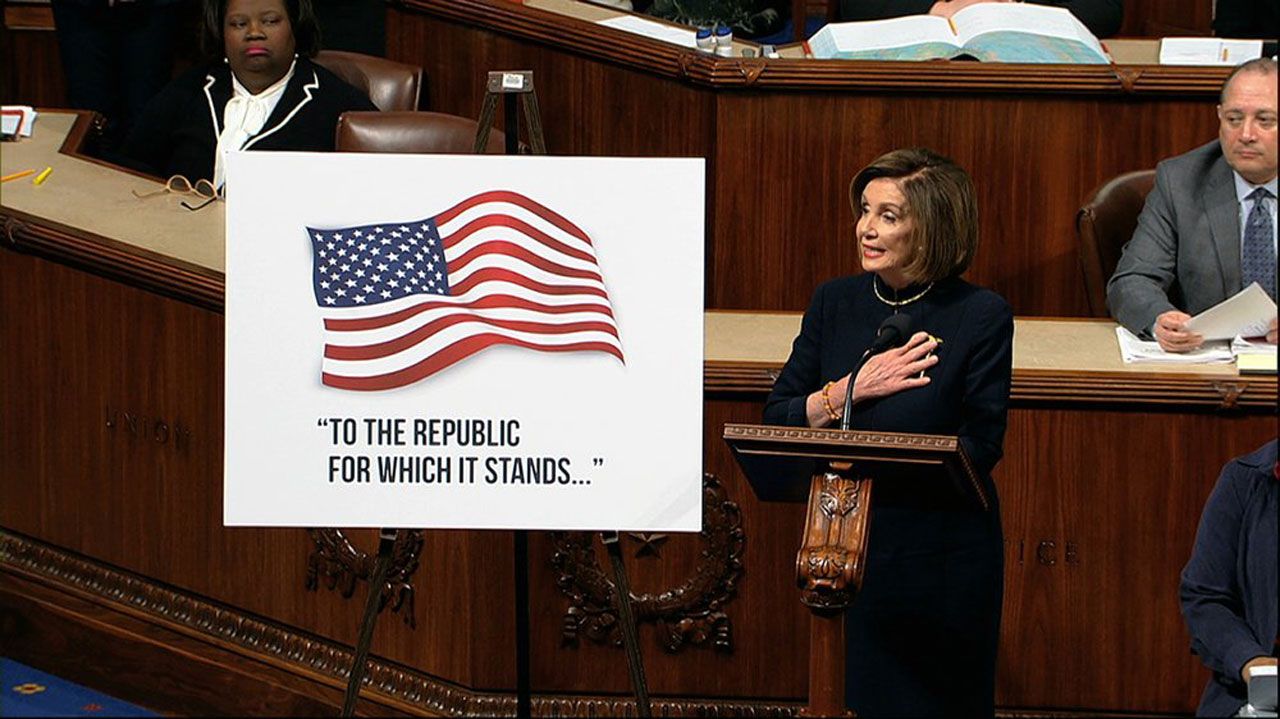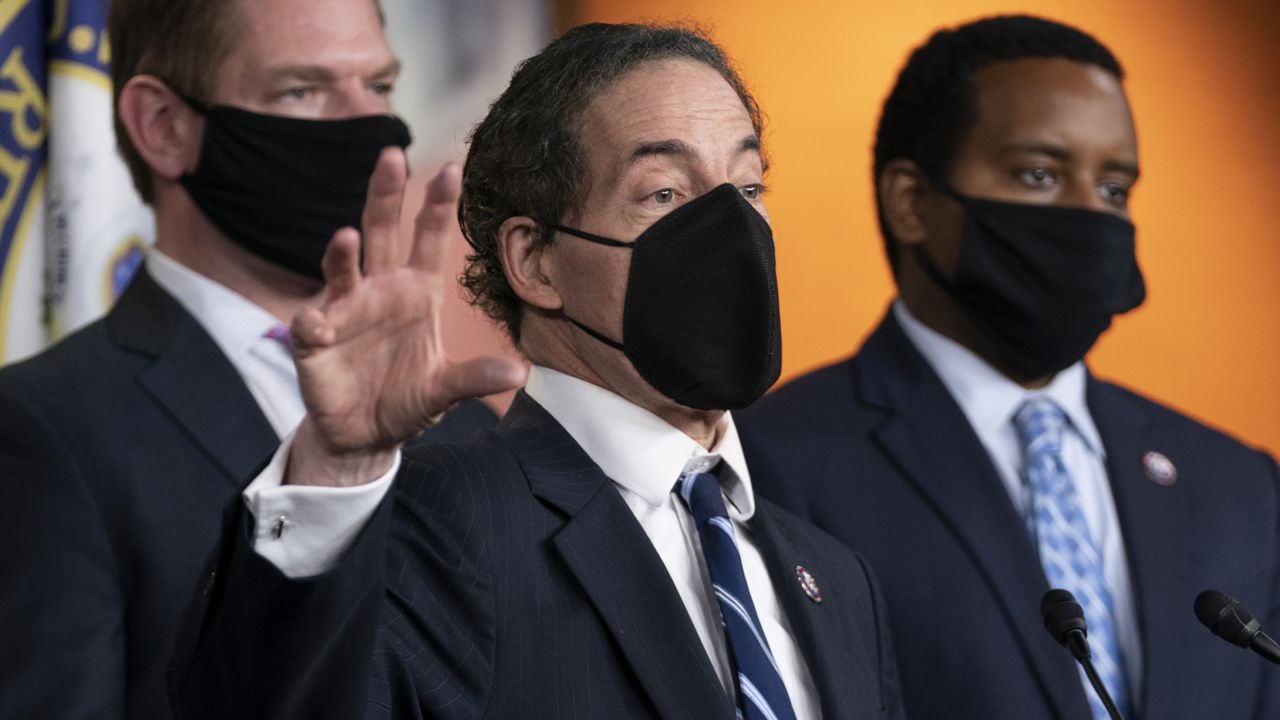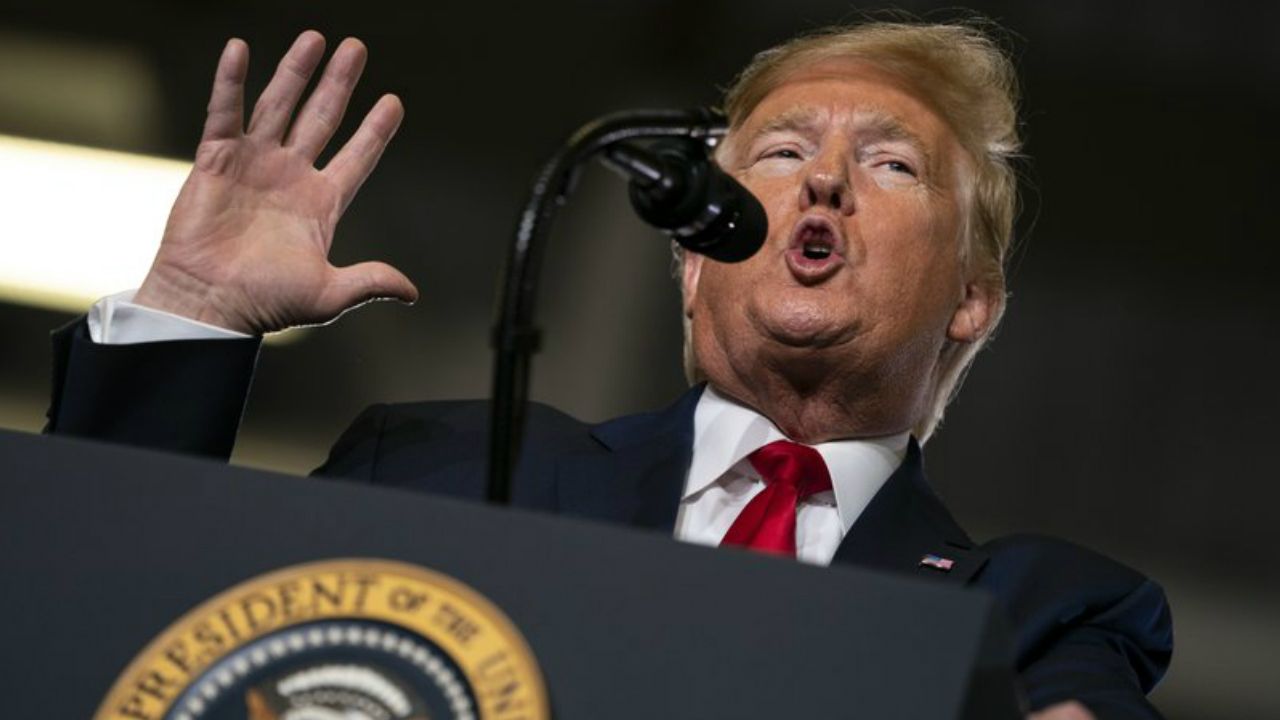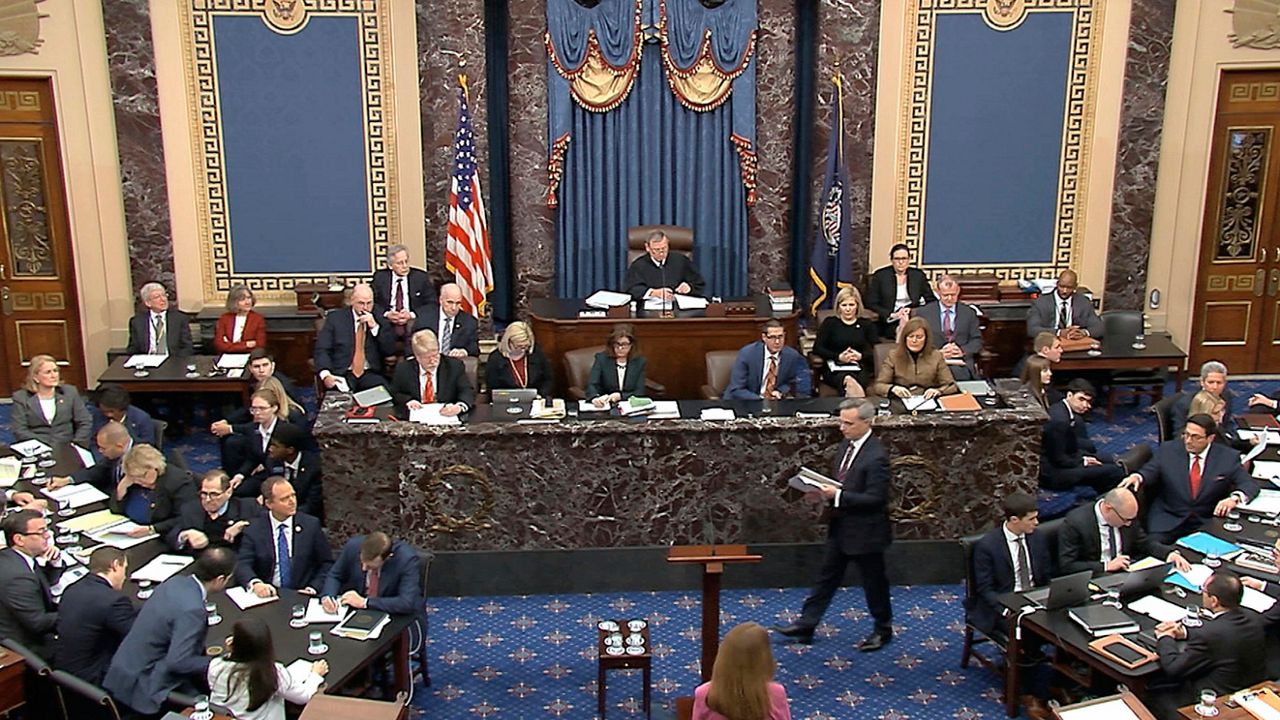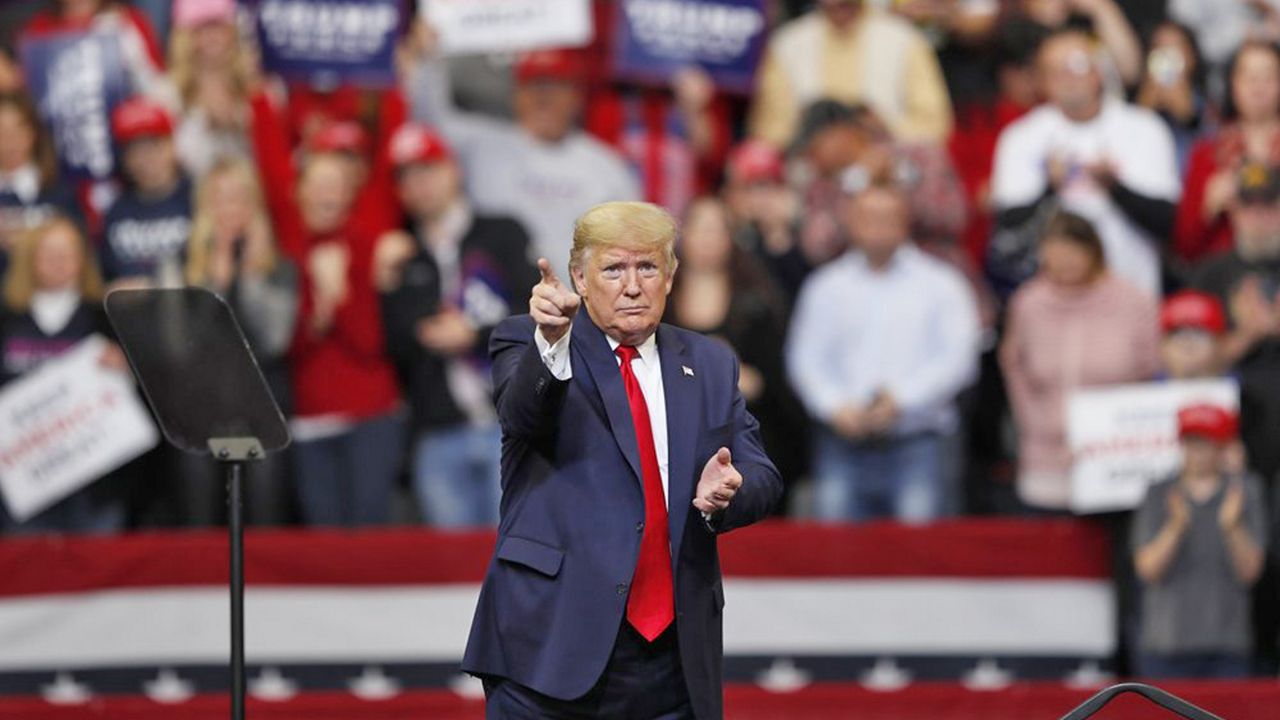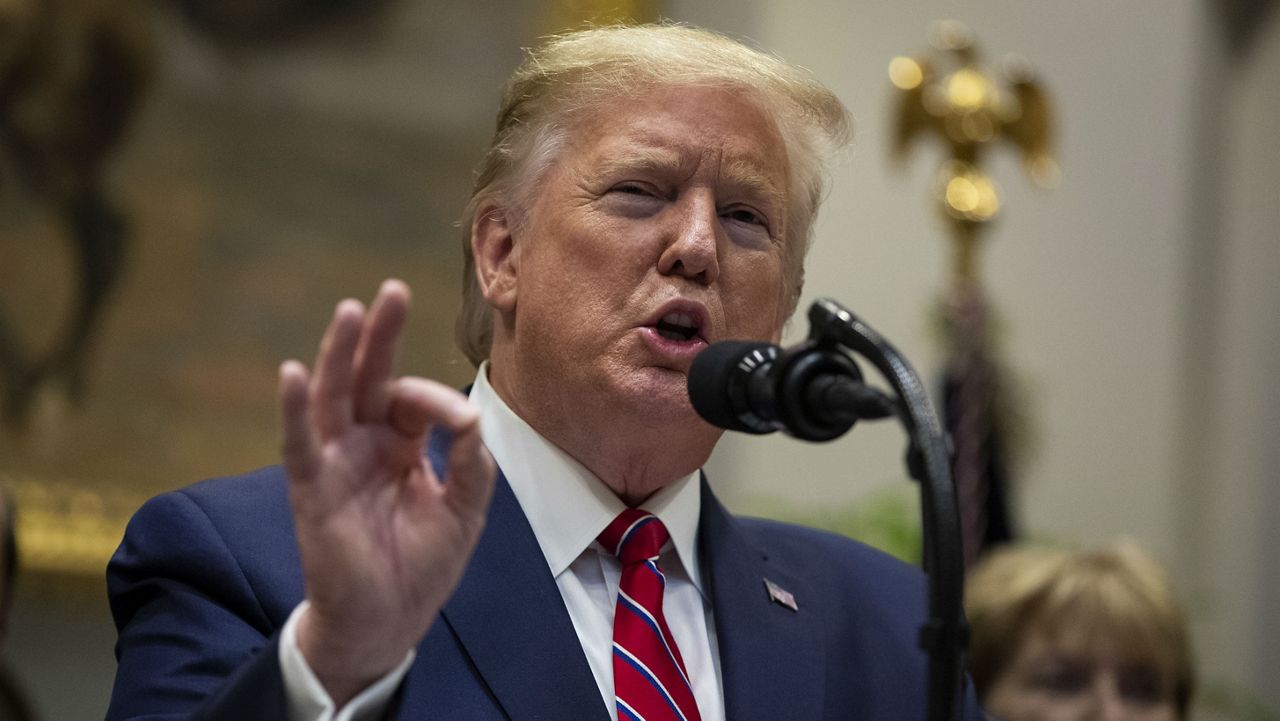WASHINGTON — Voting mostly along party lines, the U.S. House of Representatives adopted both Articles of Impeachment against President Donald Trump on Wednesday.
- RELATED:
- READ: Resolution Impeaching Donald John Trump, President of the United States, for High Crimes and Misdemeanors (PDF)
- House Judiciary Committee Releases Lengthy Impeachment Report
- House Judiciary Committee Approves Articles of Impeachment
- House Panel Presses Toward Trump Impeachment Vote
- Democrats Introduce 2 Impeachment Articles Against Trump
- Second Public Hearing in Impeachment Tense, Contentious
- Nancy Pelosi: House Will Draft Articles of Impeachment Against Trump
- Constitutional Scholars Testify in House Impeachment Hearing
- Takeaways From House Report on Trump Impeachment Inquiry
- Understanding How The Impeachment Process Works
- WHAT YOU NEED TO KNOW: Key figures, background in Trump Impeachment Inquiry ►
- WATCH LIVE: Spectrum News will periodically dip into the impeachment hearings ►
- JUMP TO LIVE UPDATES: President Donald Trump's Impeachment Vote ▼
On Article I — Abuse of Power 230 members voted "yea," while 197 members voted "nay." The Democrats were joined by 1 independent in voting "yea", while another Democrat, Rep. Tulsi Gabbard (D-Hawaii), voted "present." Two Democrats voted "nay."
Shortly after, on Article II — Obstruction of Congress, 229 voted "yea," while 198 members voted "nay." Again, for this vote Democrats were joined by one independent, former GOP Rep. Justin Amash, while Gabbard voted "present." On Article 2 three Democrats voted "nay."
The vote followed over six hours of debate in the House chamber, with members delivering mostly prepared remarks either in support of or against impeachment of President Trump.
The president fired off a scathing six-page letter to House Speaker Nancy Pelosi Tuesday, saying the Democrats are waging open war on American democracy. Pelosi called the letter "really sick."
With the House set to impeach, partisan clashes moved to the House rules committee on Tuesday. There, lawmakers set up the parameters and timing of the impeachment vote.
Lengthy debate over the articles followed, with lawmakers focused on the two articles of impeachment. Then came the vote.
For now, it appears there will be no Republican defections. Democrats seemed to have secured the votes to impeach, although it is possible there will be a handful of moderate Democrats who will vote against impeachment.
These Democratic lawmakers worry what voting "yes" for impeachment could mean for their political fate in their home districts that supported Trump in the last election.
Both articles are expected to be adopted along party lines, meaning this will be the third president in history to be impeached.
The big question after the vote in the House is what happens during the Senate trial, mainly how long it will last and whether any witnesses will be called.
In the end, about 20 or more Republican senators would need to vote in favor of removing Trump from office.
That seems unlikely; meaning the trial likely will end with an acquittal.
This all stems from a July 25 phone call between Trump and Ukrainian President Volodymyr Zelenskiy.
In the phone conversation, Trump asked for a "favor," according to an account provided by the White House. He wanted an investigation into both Democrats and Biden, a possible 2020 rival. Later it was revealed that the administration was also withholding $400 million in military aid from Ukraine.
Republicans argue the money was given to Ukraine without any investigation, and there was no quid pro quo, or favor for a favor.
Trump also wanted Hunter Biden, the former vice president's son, looked into. Hunter Biden sat on the board of the Ukrainian gas company called Burisma while his father was vice president.
The wide gap between Texas Democrats and Republicans on the impeachment allegations became evident as lawmakers debated the two articles. In the end, the Texas congressional delegation voted similar to the broader House - along party lines.
Trump’s impeachment is likely to resonate throughout the 2020 election season in Texas.
Texas Democratic Congressman Henry Cuellar is considered one of the most vulnerable members of the delegation. He waited until the day of the vote to announce he would vote in favor of removing Trump.
“I’m following my duty as a member of Congress,” Cueller said.
He said his decision was not based on polls, although he did explore how his constituency felt about the process ahead of time.
“I wanted to find out exactly where people were on this,” he said. “But again, it was follow the evidence, follow the facts, follow the law, and that’s how I came to this decision.”
The focus on Texas’s delegation now turns to Republican Sens. Ted Cruz and John Cornyn, jurors in the Senate trial. They’re expected to stick with Trump. Cornyn has said the House should be embarrassed about what they have done on impeachment. Cruz called it a lynch mob.
The Senate trial on whether to remove the president is expected to begin in early January.




